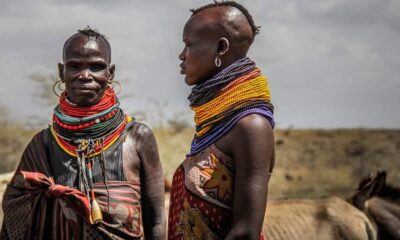Air traffic in Nigeria and other Africa countries has been estimated to increase by 274 million, bringing the total traffic per year to 400 million by 2036.
The global projection released by the International Air Transport Association (IATA) estimated the traffic in Africa to consistently grow by 5.9 per cent over the next 20 years.
The growth rate, though marginal when compared with other continents, promises boom time for prepared airlines on both local and international routes.
IATA, in a forecast released on Tuesday, expects 7.8 billion passengers to travel in 2036, a near doubling of the four billion air travelers expected to fly this year. The prediction is based on a 3.6 per cent average Compound Annual Growth Rate (CAGR) noted in the release of the latest update to the association’s 20-Year Air Passenger Forecast.
IATA’s Director General and Chief Executive Officer (CEO), Alexandre de Juniac, said all indicators lead to growing demand for global connectivity.
“The world needs to prepare for a doubling of passengers in the next 20 years. It’s fantastic news for innovation and prosperity, which is driven by air links. It is also a huge challenge for governments and industry to ensure we can successfully meet this essential demand,” de Junaic said.
According to IATA, the biggest driver of demand will be the Asia-Pacific region. The region will be the source of more than half the new passengers over the next two decades.
The point at which China will displace the United States as the world’s largest aviation market (defined as traffic to, from and within the country) has moved two years closer since last year’s forecast.
“We now anticipate this will occur around 2022, through a combination of slightly faster Chinese growth and slightly reduced growth in the U.S. The UK will fall to fifth place, surpassed by India in 2025, and Indonesia in 2030. Thailand and Turkey will enter the top ten largest markets, while
France and Italy will fall in the rankings to 11th and 12th respectively.
Risks, opportunities and sustainability,” IATA stated in the report.
A number of risks to the forecast have been identified. Maximising the potential benefits of aviation growth will depend on current levels of trade liberalisation and visa facilitation being maintained.
If trade protectionism and travel restrictions are put in place, the benefits of air connectivity will decline as growth could slow to 2.7 per cent, meaning 1.1 billion fewer passenger journeys annually in 2036.
Conversely, if moves towards liberalisation increase, annual growth could be more than two percentage points faster, leading to a tripling in passengers over the next 20 years.
Planning for growth will require partnerships to be strengthened between the aviation industry, communities and governments to expand and modernize infrastructure. Runways, terminals, and ground access to airports will come under increasing strain.
Innovative solutions to these challenges, as well as to the baggage and security processes, cargo handling, and other activities, will also be needed. And air traffic management needs urgent reform to cut delays, costs and emissions.
“Increasing demand will bring a significant infrastructure challenge. The solution does not lie in more complex processes or building bigger and bigger airports but in harnessing the power of new technology to move activity off-airport, streamline processes and improve efficiency.
Through partnerships within the industry and beyond, we are confident that sustainable solutions for continued growth can be found,” de Juniac said.
The aviation industry has adopted a robust strategy to reduce its environmental impacts, particularly its carbon emissions.
“No industry has done more to meet its environmental obligations than aviation. Our tough targets to achieve carbon-neutral growth from 2020 and to cut our CO2 emissions to half-2005 levels by 2050 are backed by a comprehensive strategy.
“Our immediate aims are to work with governments to increase the production of sustainable aviation fuels, and to deliver air traffic management efficiencies, which promise significant emissions savings. And from 2020, a Carbon Offsetting and Reduction Scheme for International Aviation (CORSIA) will play a major role in meeting our carbon-neutral target,” de Juniac said.
The five fastest-growing markets in terms of annual additional passengers in 2036 compared to 2016 will be China (921 million new passengers for a total of 1.5 billion); U.S. (401 million new passengers for a total of 1.1 billion); India (337 million new passengers for a total of 478 million); Indonesia (235 million new passengers for a total of 355 million) and Turkey (119 million new passengers for a total of 196 million).
Many of the fastest-growing markets are achieving a compound growth rate of more than 7.2 per cent per year, meaning their market will double in size each decade. Most of these markets are in Africa, including: Sierra Leone, Benin, Mali, Rwanda, Togo, Uganda, Zambia, Senegal, Ethiopia, Ivory Coast, Tanzania, Malawi, Chad, Gambia and Mozambique.
Routes to, from and within Asia-Pacific will see an extra 2.1 billion annual passengers by 2036, for an overall market size of 3.5 billion. Its annual average growth rate of 4.6 per cent will be the third-highest, behind Africa and the Middle East.
The North American region will grow by 2.3 per cent annually and in 2036 will carry a total of 1.2 billion passengers, an additional 452 million passengers per year.
Europe will also grow at 2.3 per cent, and will add an additional 550 million passengers a year. The total market will be 1.5 billion passengers.
Latin American markets will grow by 4.2 per cent, serving a total of 757 million passengers, an additional 421 million passengers annually compared to today.
The Middle East will grow strongly (5.0 per cent) and will see an extra 322 million passengers a year on routes to, from and within the region by 2036. The total market size will be 517 million passengers.
































































